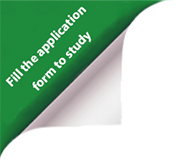The wild boar (Sus scrofa) is found in almost all of Europe. Although it is an exemplary omnivore that does not despise insects, reptiles or carrion, its main source of food is mainly plants. It usually looks for food in the forests, but in the growing season it also uses agricultural land, which creates ideal conditions. However, farmers have problems with this, and the wild boars cause enormous damage to their crops. In order to prevent these agricultural losses and to create certain measures, it is important to first find out the exact food preferences and habits of this game. That is why a project based on the principle of GPS location was created at the Faculty of Forestry and Wood Sciences.
The problem with wold boars devastating field crops is nothing new, but it has only become significant in the last few years, when populations have begun to grow rapidly across Europe. The numbers of wild boars depend mainly on the structure of cultivated crops. In 2011, the total area of ??rapeseed and corn in the Czech Republic was 725 thousand hectares, which was an absolute top since the first record in 1920. These crops are an ideal shelter due to their height and a source of food from spring to autumn, so the return to forests comes only at the time of ripening of acorns and beechnuts.
The only period when population growth can stop is the ensuing winter, which can cause a shortage of beechnuts and acorns, because due to the higher snow cover, the game does not get to food for many weeks. However, these periods are very rare in recent years. So how do you reduce conflicts between game and human activity? Only by finding out how wild boars actually live. It is necessary to map their behaviour and habits and monitor which localities or food sources they prefer. Only in this way can more effective hunting and other measures be achieved.
Telemetric * data transmission using collars placed on the neck of eleven adults proved to be a good scientific method. This was preceded by trapping in wooden fences 10 x 10 m, which were randomly distributed throughout the study area. After a successful capture, the wild boars were put to sleep.
The collars are equipped with a GPS and GSM module and enable almost continuous monitoring of boars using Google maps. As soon as the animal reaches the area covered by the mobile signal, the collar sends an SMS about the position. In addition, the belt is equipped with a temperature sensor and an activity sensor that detects whether the boar is grazing, resting or moving. If the animal dies, the GPS sends a message that the collar has stopped moving and the animal can be traced according to the recorded position.
The results of the project, which is implemented by the Department of Game Management and Wildlife Biology, are presented on the Divočáci online portal and can be viewed using commonly used web browsers, including mobile devices. Of the several options for data visualization, the most used display is in the form of points of the monitored individual, which show individual positions in time. When we click on the individual points, we get the mentioned information revealing daily regime of wild boars.
According to the Ministry of Agriculture, the damage caused by wild boars can reach up to 3.5 billion crowns a year. As the number of boars continues to grow, local agricultural production, especially corn and rapeseed, can be completely devastated. As mentioned, the only way to reduce damage is to comprehensively understand the behaviour of this game, including the application of knowledge in practice, to which this unique method based on telemetry is an important helper.
* technology enabling remote measurement and remote data transmission.
Ing. Miloš Ježek, Ph.D.
In 2008, he graduated in Applied Ecology at the Faculty of the Environment. Four years later, he completed postgraduate studies at the Department of Forest Protection and Game Management, Faculty of Forestry and Wood Sciences, where he currently works as a researcher focusing on ecology, population dynamics and spatial activity of game.
Prepared by: Jakub Málek

